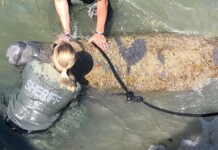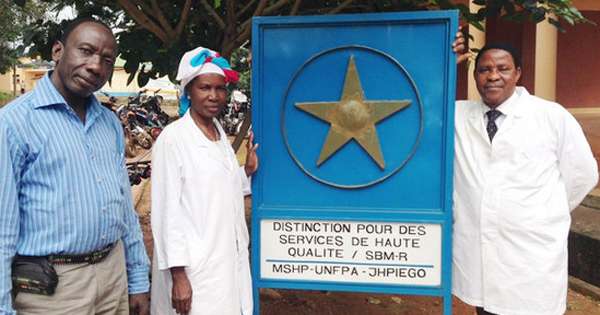Elsewhere in Guinea the Ebola virus continues to spread, but in Telimele, a town of 300,000 located 160 miles (270 km) north of the capital, health workers stopped the outbreak and the city is now Ebola-free.
Dr Maurice Ony Beuvogui, the Director of the district’s 44-bed hospital, was ready to meet the challenge. As the outbreak progressed across the country, the national preparedness plan was activated and the hospital staff attended training on infection prevention and received Ebola protective equipment.
When three people had come in with symptoms and died, it also spread to one health care worker, but with the help of Doctors Without Borders (Medécins Sans Frontières, MSF), an isolation area and a treatment center were opened within days. The World Health Organization (WHO) also sent a team of Ebola experts to provide technical support for overall coordination, surveillance and data collection.
“We wanted people to trust our interventions,” Dr Beavogui told WHO.
“MSF ran the treatment centre with increased transparency, allowing family members to talk to their loved ones from a distance,” writes WHO on their website. “Local health workers had credibility and were connected to the community – an essential factor in encouraging people to follow public health advice.”
“Religious and traditional leaders and the Griots – influential musicians in the villages – worked together to counteract unfounded rumors and gain the trust of the community. The district health authority rapidly organized a 14-person contact tracing team that cruised throughout the district on motorbikes. At the peak of the Telimele outbreak, the health of around 250 contacts was monitored.”
After the health care worker spent 2 weeks in the treatment centre, he tested negative for Ebola infection — and immediately went back to work helping other patients.
A total of 26 cases were identified through contact tracing and 16 were saved, a survival rate of 62%, much better than the overall rate of 30% in the rest of Africa.
According to WHO, Telimele has been Ebola-free since the end of July, but health workers remain vigilant.
Want to help? Make a donation to Medécins Sans Frontières
(READ more from WHO) – Photo credit: WHO/T. Jasarevi




















